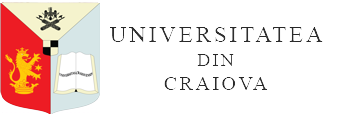SYNERGETIK DER NOMEN-DEKODIERUNG IN EINFACHER UND ZUSAMMENGESETZTER SATZSTRUKTUR DES DEUTSCHEN
DOI:
https://doi.org/10.52846/aucssflingv.v43i1.24Keywords:
linguosynergetics, noun decoding, principle of least effortAbstract
The article focuses on the interaction of syntagmatic, semantic and paradigmatic factors in the generation of noun content in German according to linguosynergetic approach. The study highlights the main problems of the German noun polysemy and monosemy, considers the linguistic and contextual meanings of the noun as a carrier of encoded and decoded information and analyzes the generated noun content synergy in German-language fiction and publicistic texts. The results of the study were obtained under synergetic-quantitative approach and interpreted as synergistic constructs of noun name self-organization by the principle of least effort that directs the human mental lexicon to the optimal decoding of the actual information-semantic potential of polysemantic or monosemantic nouns in correlation with the category of sentences’ structure in German language.

